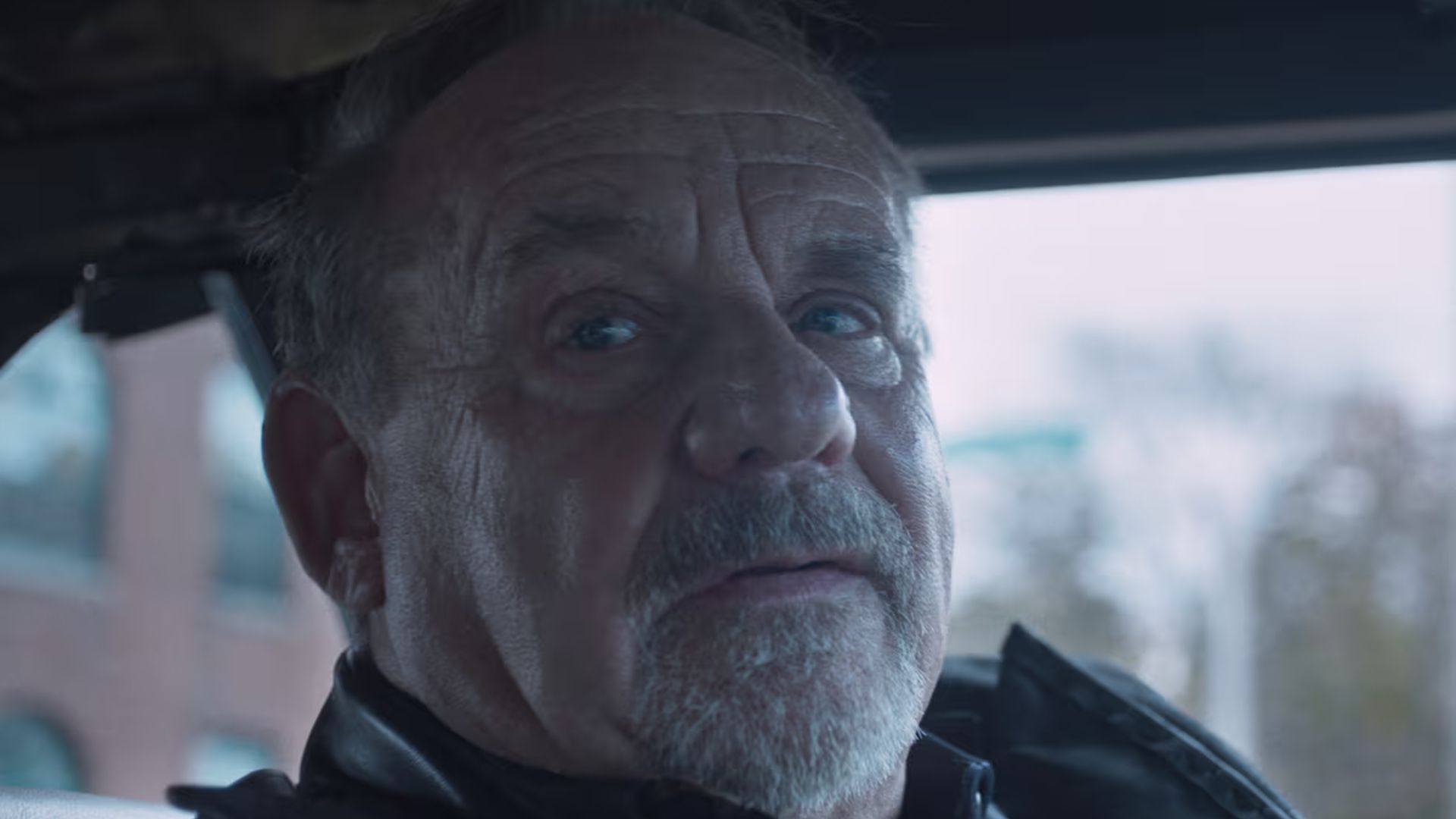A single card credit at the end of Spike Lee’s hugely entertaining crime thriller Highest 2 Lowest reads: “Inspired by the master, Akira Kurosawa.” That tribute feels not in the least like someone paying lip service. Reinterpreting the giant of Japanese cinema’s 1963 classic, High and Low, a tense police procedural with a sharp dissection of social class structures, Lee and screenwriter Alan Fox handle the material with the utmost care and respect. At the same time, they transpose the narrative spine to an environment Lee knows intimately, allowing the director to make the film his own, with wit, high style and kinetic energy to burn.
Highest 2 Lowest is Lee’s first feature set and shot in New York since 2012’s Red Hook Summer, and that absence seems to have reignited his love for the city as a visual playground in ways that vibrate throughout.
Highest 2 Lowest
The Bottom Line
All highs, no lows.
Venue: Cannes Film Festival (Out of Competition)
Release date: Friday, Aug. 22
Cast: Denzel Washington, Jeffrey Wright, Ilfenesh Hadera, A$AP Rocky, Aubrey Joseph, Dean Winters, LaChanze, John Douglas Thompson
Director: Spike Lee
Screenwriter: Alan Fox, based on the novel King’s Ransom, by Ed McBain, and the Akira Kurosawa film High and Low
Rated R,
2 hours 14 minutes
That impression is planted instantly by the stunner of an opening — set to “Oh, What a Beautiful Mornin’” from Oklahoma! Cinematographer Matthew Libatique’s cameras glide in swoon-inducing wide shots around Manhattan and Brooklyn, kissed by pastel morning light. Conspicuously, the frame catches a large all-caps pink neon at the top of a building that reads simply, “WELCOME,” which might be a subtle nod to the pink factory smoke in Kurosawa’s otherwise B&W original.
The mobile camera eventually settles on a luxury apartment block in Dumbo, panning up to find Denzel Washington, as music industry mogul David King, talking business on his cell on the penthouse balcony. Right away we can see he’s a man bristling with confidence, beaming from ear to ear about what he believes is a sure-thing deal set to go through.
This is Washington’s fifth movie with Lee, and they clearly have a shorthand that helps them dance to each other’s rhythms. The collaboration this new movie most recalls is another foray into genre filmmaking, the 2006 heist caper Inside Man, less for the crime elements than the precision-tooled plot engine, snappy pacing and crackling energy.
The talented Libatique also shot that film, but his work here is next-level; it’s a great-looking movie with a sumptuous visual sheen that looks the way good cashmere feels. Lee shakes up the compositions with playful flourishes like wipes using the logo of David’s record company, split screen with a row of guns as the dividing line, and a stylized insert conceived like a music video and performed by a singer behind bars in an orange jumpsuit, magically flanked by twerking backup dancers.
When David’s elegant wife Pam (Ilfenesh Hadera) asks him for their usual fat-check donation to a city museum whose board she sits on, he tells her to hold off and rein in expenses for a while. This is not something she’s used to hearing.
Their teenage son Trey (Aubrey Joseph), however, is used to hearing disappointments and broken promises from his dad. David hasn’t gotten around to listening to a demo for a female artist that aspiring music manager Trey hopes he will sign, and he offers a pat apology when he rushes off to a business meeting rather than staying to watch Trey and his best friend Kyle (Elijah Wright) at basketball practice. (In one of several winks at fellow basketball junkies, Lee casts former Boston Celtics and L.A. Lakers player Rick Fox as one of the team’s coaches).
The meeting that pulls David away is an audacious plan to up his shares to a majority stake in Stackin’ Hits and take back control of the company he spent 25 years building up to chart domination, peaking in the early 2000s. Needing to psych himself up, he tells his driver, Paul (Jeffrey Wright, Kyle’s father onscreen and off), “I need a theme!” Paul obliges by blasting the evergreen McFadden & Whitehead disco hit “Ain’t No Stoppin’ Us Now” on the car stereo.
Wearing a sharp suit and killer shades, he strides into the company’s office building as if he already owns everything. But he meets opposition when veteran board member Patrick (Michael Potts) informs him they have decided it’s time to sell to a larger music biz outfit that has been circling for a while. He later reveals to Pam, who’s skeptical, that he’s mortgaged the penthouse and their house in Sag Harbor to take out a hefty loan and wants to pursue the deal, despite the wishes of the uncooperative board.
But when a call comes, revealing that Trey has been kidnapped, the company takeover bid gets nudged aside by the family crisis. A team of detectives — led by Earl Bridges (John Douglas Thompson), Bell (LaChanze) and Higgins (Dean Winters), the latter a smug white dude who immediately causes friction with David — sets up operations in their dining room to trace calls. The kidnapper demands a $17.5 million ransom, otherwise threatening to kill Trey.
Pam says of course they’ll pay and David agrees. But when Trey is found and it emerges that the kidnapper got the boys mixed up and took Kyle instead but has not changed his terms, David hesitates, $17.5 million being a lot to pay for someone else’s kid — even his godson, the child of his right-hand man. Far more than halting David’s business plans, that amount of money would wipe them out.
Among the most significant changes is the reconception of the driver character. In Kurosawa’s version, the chauffeur was an exceedingly meek man who got down on the floor to beg his stern shoe-manufacturer boss, played by the great Toshiro Mifune, to save his son. Paul is pugnacious, especially with the detectives when his criminal past prompts them to question him as a subject. He’s also not one to bow and scrape with David, even though he’s indebted to him for giving him a job and a fresh start.
One of the key themes of Fox’s screenplay is attention as currency. This plays out on social media with an outpouring of love for beloved industry figure David when his son appears to be in danger, but shifts abruptly when the full story emerges, generating unfounded headlines like “Nepo Kid Trey Set Up Friend for Kidnapping.”
David does eventually agree to pay, based on the assumption that the cops will catch the criminal and retrieve the money. A dolly zoom underscores what a sobering risk this is for David, especially with the suits at Stackin’ moving to strongarm him out of the company and even threatening legal action.
The second part of the movie kicks into high gear with an exhilarating train set-piece that might represent some of Lee’s most technically astounding direction. The kidnapper demands that David handle the cash drop-off himself on a Manhattan-bound 4 train, with further details to be communicated on his cell.
Lee makes the action more propulsive by staging it against the backdrop of Puerto Rican Day celebrations, with hundreds dancing to a live performance by Latin music great Eddie Palmieri and his orchestra, blocking access to a strategic subway stop. The situation on the train is equally chaotic after a noisy mob of baseball fans get on at Yankee Stadium.
The exchange doesn’t quite go as planned, and the kidnapper and his crew are way more organized and forward-planning than the detectives anticipated, repeatedly throwing them off the trail with decoys and swaps between motorcyclists all clad in the same head-to-toe black. It’s a tremendously exciting sequence, expertly sustained.
The kidnapper honors his promise to release Kyle, who turns up dazed but otherwise unharmed in a Bronx skate park after being bound and gagged somewhere in a basement bathtub for days. He’s unable to help much with clues, but he is able to hum a few notes of a rap tune that was thumping through the walls on repeat.
This proves invaluable to David, with his famous ear for music, but when he traces the singer through a shady contact of Paul, the cops are dismissive of his findings, Higgins more than anyone. David and Paul decide to track down the singer — one of countless struggling artists denied a foot in the door at Stackin’ — on their own, without waiting for law enforcement to catch up.
Of course, the movie swivels onto familiar Hollywood ground when Washington’s character becomes almost an action hero, despite prickly edges and an unsympathetic demeanor that make him almost an antihero. But damned if it doesn’t make for gripping fun, ushering in an amusing turn from Isis “Ice Spice” Gaston and a blindingly charismatic one from A$AP Rocky, playing characters best not discussed, for spoiler reasons.
One scene sure to be an audience favorite has David and his antagonist facing off on either side of the glass wall in a recording studio, sparking a hilarious impromptu rap battle of sorts. The dynamic is echoed soon in a prison visit, in which Lee narrows the height of the frame to squeeze the characters’ tense interaction.
The film is packed with great music, starting with Howard Drossin’s mood-shifting score, which ranges from melancholy piano to cascades of jazz, and two electrifying performances that add a massive charge. One of those is the title song, a big-build power anthem belted to the heavens by singer Aiyana-Lee. And the cast is top-to-toe excellent, with special honors to Washington, Jeffrey Wright and A$AP Rocky, who follows his work in If I Had Legs I’d Kick You with further proof of a megawatt scree presence.
Lee’s adaptation doesn’t match the complexities of class and hierarchy and even dynamics in a marriage that are such a fascinating part of the Kurosawa. Then again, he’s not trying to, and this is a universe away from the disappointment of Oldboy, his 2013 remake of the Park Chan-wook thriller. The director is in the role of the flashy, panache-y showman here, and he plays it to perfection, delivering a big, highly polished chunk of movie that’s pure enjoyment.































